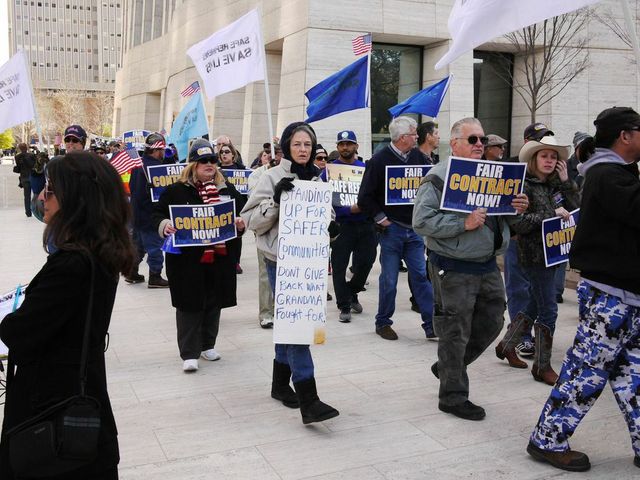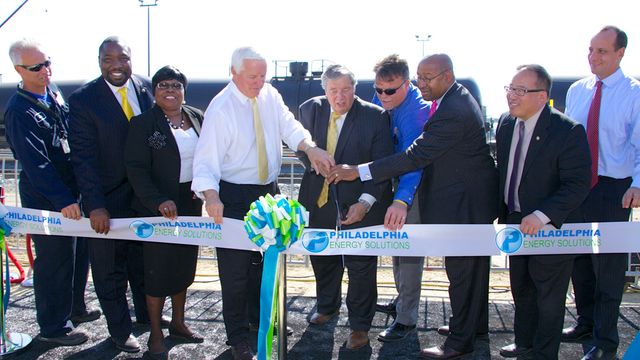Margot Miller
Manchester, which has 95 Labour councillors out of 96, is trailblazing a measure that will lead to the further fragmentation and privatisation of the National Health Service.
Chancellor George Osborne will devolve control of the region’s £6 billion NHS budget to the Greater Manchester Combined Authorities (GMCA).
Beginning next year, local government in Greater Manchester, a conurbation of 2.7 million people with 10 Local Authorities, will have control of every penny spent on public health, social care, general practitioner services, mental health and acute services and community care.
The Conservative/Liberal Democrat government has set out to destroy all the gains in health, education and social welfare conceded to the working class after the last World War, and has found willing accomplices in numerous Labour councils.
Last fall, Osborne visited Manchester to co-sign a deal with local Labour Party leaders, devolving £1 billion from central government. The £300 million housing budget, £30 million annual business rates for building a new tramline local transport, local apprenticeship funding, and part of the Government’s Welfare to Work Programme have been devolved to the GMCA.
According to Osborne, devolution will turn Manchester into a “northern powerhouse” of economic growth. After the model of Manchester, other city-regions in the north of England, Leeds and Sheffield will follow.
Negotiations over “Devo Manc” took place in secret last summer between Osborne, Treasury Permanent Second Secretary John Klingman, the leader of Manchester City Council Sir Richard Leese and Manchester’s Chief Executive Sir Howard Bernstein.
There has been no debate on the biggest overhaul in the provision of healthcare and welfare since the foundation of the welfare state either in Manchester or nationally. Yet it is being sold as an exercise to improve local democracy and accountability.
Two years ago, Manchester voted “no” by 53 to 47 percent in a low turnout of 25 percent in a referendum on whether or not to have an elected mayor. Now an elected and extremely well-paid mayor, with power over the devolved budget, has been made part of the new package regardless.
There is every indication that London will follow Manchester’s lead.
To support devolution, London’s Mayor Boris Johnson commissioned a report on city finance by the London School of Economics that described central control of taxation as “hollowed out democracy.” This is a red herring to hide the scale of the cutbacks in services still to be implemented, and the further rollout of privatisation through “competitive tendering.” Devolution essentially enables central government to offload its responsibilities for health and welfare.
Guardian writer John Harris wrote that Leese and his fellow Labour council leaders have “radical and creative answers not just to England’s creakingly centralized system of government but to the huge questions about how to run places when money is so tight.”
Local Authority leaders played a vital role in imposing cuts in services to finance the bailout of the banks in 2008, with the full cooperation of the public sector trades unions. Last November, Manchester City Council announced £60 million of cuts, including 600 voluntary redundancies which will fall heavily on social care.
The Financial Times reported that Prime Minister David Cameron underestimated the level of cuts to be imposed by a full half. According to the Office for Budget Responsibility’s figures from March, year on year cuts of £48 billion need to be made until 2018-2019 to meet the government’s targets for getting rid of the deficit.
Leese, a likely contender for the post of mayor, has promised to deliver a “reduction in public spending not by clumsy centrally imposed cuts but by helping as many as possible of those on benefits or in poor health into sustainable independence.”
With a devolved budget of £100 million for the Welfare to Work programme and a target of getting 50,000 people, including the sick, off benefits, the mayor will be tasked with advertising Manchester as a cheap labor platform for global corporations.
Greater Manchester is one of the most popular places in the UK, outside of London, for direct foreign investment. Beijing Construction Engineering has a 20 percent stake in Manchester Airport, for example. Globalised production and finance has provided opportunities for the regional bourgeoisie to make direct links with transnational corporations, which leads to a race to the bottom in relation to wages and services, as regions compete with each other for investment.
Devolved services will facilitate the end to national pay agreements and conditions, as the trade unions offer up their workforces at competitive rates of pay.
In announcing the devolution of health care and its integration with the budget for social care, Manchester City Council says it will focus on preventative medicine. Long-term conditions like asthma and heart conditions will be treated, as much as possible, in the community—a policy that sounds good but which will, of course, be accompanied by cutbacks in hospital services. Leese said the “first big change is to make sure that a lot of people aren’t entering into needing health care that don’t need it.”
People “are spending too long in hospital,” he added.
While the coalition government is implementing the £20 billion efficiency savings initiated by the previous Labour government, the reality is that the NHS and social care have been cut to the bone, and people are sent home from hospital almost as soon as they have been operated on.
The NHS has also been bled dry by the Private Finance Initiative. A shortage of hospital beds and a lack of doctors and nurses are compounded by the fact that, when elderly people have had hospital treatment, there is nowhere to send them to recuperate due to the closure of nursing homes. Added to that, the shortage of general practitioners has led to more people presenting at hospital emergency departments. Empty pledges to ring-fence spending on health by all political parties are rendered null and void by private companies eating away at money that should be spent on essential services.
Labour’s Shadow Health Secretary Andy Burnham said the Manchester agreement will lead to a “two-tier service and challenge the notion of a National Health Service.” Yet this is being carried out by a Labour Council.
The pro-Labour New Statesmen called the changes “a great leap forward.”
In the Guardian, Simon Jenkins made a bizarre comparison between the size of the NHS and “Russia’s Red Army,” intending that the demonization of Russia over the Ukraine will somehow rub off onto the NHS. “Big has not worked,” he declared.
The threats to health and social care posed by “Devo-Manc” underlines the warning made by the Socialist Equality Party during the Scottish independence referendum campaign of the dangers posed by regionalism, devolution and separatism as a means of dividing the working class—a policy backed by the pseudo-left Socialist Workers Party and Socialist Party.
“The aim is to transform Scotland into a low tax, cheap labour platform for the benefit of the banks and transnational corporations,” we wrote. “The victims of this will be workers on both sides of the border, who will see a deepening of the ongoing offensive against jobs, wages and conditions that has been waged by all the major parties in both Westminster and Holyrood.”




